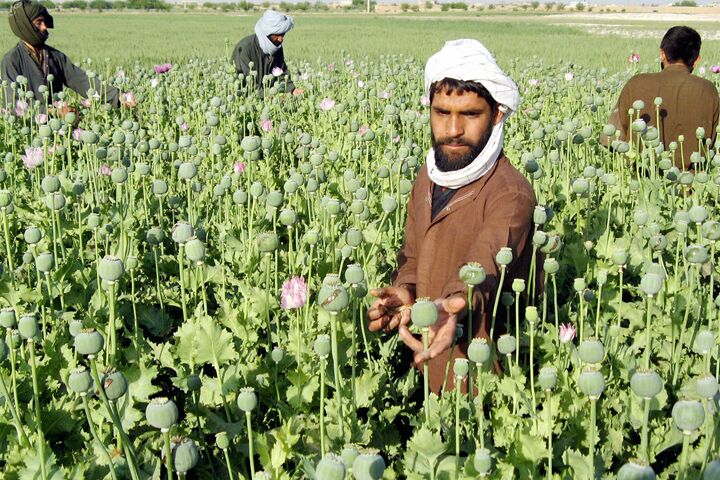
Afghanistan Produces Another Record Poppy Crop
Afghanistan’s narcotic cash crop, a major source of funding for the Taliban, is thriving despite Western efforts to ruin it.
Poppy growers in Afghanistan will harvest another record crop this year in spite of counterdrug efforts by the United States and its allies. The new record means that the country is virtually the sole producer of the plant, which is used to produce heroin, a powerful opiate.
Preliminary UN figures indicate that the country’s poppy production has risen by about 15 percent in the past two years and that the country now produces 95 percent of the world’s crop. Tom Schweich, the top counternarcotics officer in the State Department, says, “That makes it almost a sole-source supllier.” He says the result is a situation “unique in world history.”
Last year, the country produced 92 percent of the world’s opium: 7,286 tons. In 2000, that figure was 70 percent; in 1990, 52 percent.
Although Western efforts to curb production of poppy have met some success in northern provinces, production in other provinces has exploded. The U.S., Britain and Canada spent $420 million in counternacotics efforts in the country last year, and plan to spend another $475 million this year, although there is fierce debate over how to implement further drug-fighting efforts.
The State Department’s inspector general reported Friday that Afghanistan’s poppy crop has a potential “street value” of $38 billion, making such aid woefully inadequate in comparison. He called goals for eradicating opium production “not realistic.”
Schweich is advocating more punitive measures, saying that growers who ignore anti-drug initiatives and continue to produce the crop “need to be dealt with in a more severe way.”
“There needs to be a coercive element, that’s something we’re not going to back away from or shy away from,” he said.
However, this tough approach is meeting resistance, since Afghanistan is afflicted with severe poverty and is dealing with resurgent al Qaeda forces, as well as the Taliban.
In addition to increased insurgency activity and calls to actually give some Taliban leaders some of their power back, intelligence officials report they are seeing a stronger connection between drug production and the Taliban.
The news comes as Afghan President Hamid Karzai travels to Camp David, Md., to meet with President Bush on Sunday and Monday.
With the double-barreled problem of wildly soaring opiate production and insurgent activity complicated by the country’s economic and governmental instability, the U.S. and its allies have little hope of success in Afghanistan. For more on this subject, read “Afghanistan: Poppy and the Taliban.”
